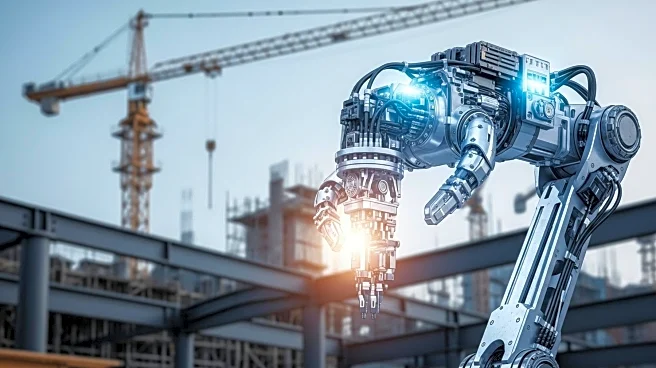What's Happening?
FieldAI, a startup based in Irvine, California, has raised $405 million in funding to enhance its robotics technology for construction sites. The company focuses on physical artificial intelligence, enabling robots to navigate complex environments without predefined paths or GPS. FieldAI's 'single software brain' has been deployed across various industrial settings, including construction sites in the U.S., Japan, and Europe. The funding will support the company's global expansion, product development, and strategic hiring to double its workforce by the end of the year.
Why It's Important?
The investment in FieldAI highlights the growing interest in robotics and AI within the construction industry. As builders seek innovative solutions to improve efficiency and safety, FieldAI's technology offers a promising approach to managing dynamic and unstructured environments. The ability to deploy robots that can adapt to changing conditions without extensive programming could revolutionize construction practices, potentially reducing costs and increasing productivity. This development also reflects a broader trend of integrating AI into traditional industries to address labor shortages and enhance operational capabilities.
What's Next?
With the new funding, FieldAI plans to accelerate its global growth and continue developing its robotics platform. The company aims to expand its presence in the construction sector and explore applications in other industries. As FieldAI's technology becomes more widely adopted, it may lead to increased collaboration with construction firms and further advancements in robotics intelligence. The company's strategic partnerships and investor backing suggest a strong potential for future innovations in AI-driven construction solutions.
Beyond the Headlines
FieldAI's approach to robotics emphasizes risk-aware architectures, addressing the limitations of conventional AI models. By focusing on embodied intelligence and real-time data capture, the company is setting a precedent for more sustainable and efficient robotics solutions. This shift towards AI-driven construction technology could have long-term implications for industry standards and workforce dynamics, potentially reshaping how construction projects are managed and executed.









